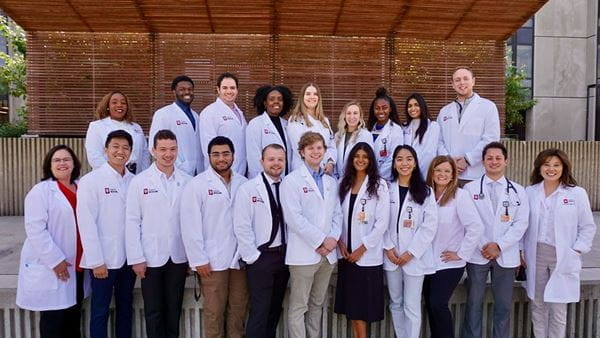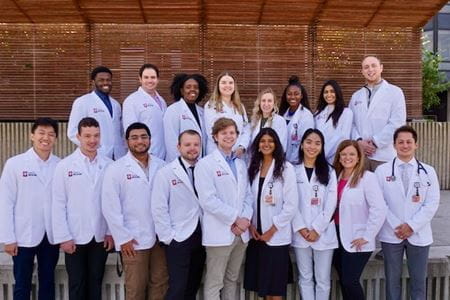“One size fits all” does not work in medicine. Just as rural America has its unique health care needs, so do urban ZIP codes. While both demographics have higher rates of poverty, the lived experiences of rural residents and inner-city dwellers are vastly different.
For 15 years, Indiana University School of Medicine has offered a Rural Medicine program in Terre Haute. Now there is a similar curricular track for medical students who want to study urban medicine in Gary, Indiana.
Once a thriving steel town along the Lake Michigan shoreline, Gary has lost 55 percent of its population since its heyday in the 1960s. An estimated one-third of the properties in the city are now abandoned. During the civil rights movement, the city’s population was about 50 percent Black; Gary elected one of the nation’s first African American mayors in 1967.
Today, Gary’s population is 78 percent Black, and about 32 percent of the city’s population lives in poverty—compared to Indiana’s overall poverty rate of 12 percent, according to the U.S. Census Bureau. Social determinants of health such as poverty, unequal access to health care, lack of education, stigma and racism are underlying factors of health inequities. Lake County residents—particularly those in Gary—have higher rates for many diseases and medical conditions including obesity, cancer, diabetes, heart disease, drug overdose and teen pregnancy.
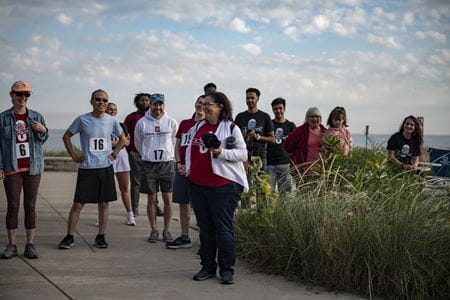 Elizabeth Ryan, EdD, associate dean and director of IU School of Medicine-Northwest, sees the regional campus location in Gary as an opportunity. In many ways, Gary is the ideal place to learn about providing medical care for the underserved. She frequently sits down with community partners to learn more about the needs among area residents and then brainstorms ways the medical school can help.
Elizabeth Ryan, EdD, associate dean and director of IU School of Medicine-Northwest, sees the regional campus location in Gary as an opportunity. In many ways, Gary is the ideal place to learn about providing medical care for the underserved. She frequently sits down with community partners to learn more about the needs among area residents and then brainstorms ways the medical school can help.
“We want what students are studying to be really applicable, to be real-life relevant,” Ryan said.
Medical students in the Urban Medicine Program benefit from the statewide MD curriculum offered at all IU School of Medicine campuses with an added emphasis on social determinants of health and elevating diversity, equity and inclusion in the context of urban, underserved patient populations. They engage in a broad range of clinical experiences at nine full-service hospitals and five federally qualified health clinics (FQHCs) which are designated for meeting critical needs of low-income and disadvantaged patients.
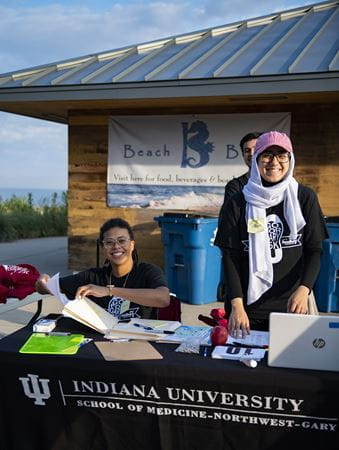 Students must be committed to staying at the Northwest campus for all four years of their medical education. Community service learning and research are integral parts of their training from year one.
Students must be committed to staying at the Northwest campus for all four years of their medical education. Community service learning and research are integral parts of their training from year one.
“It’s not like a summer program where it’s one project and you’re done,” Ryan said. “This is a longitudinal experience.”
In September 2022, medical students from the Urban Medicine program organized the “Go for Gary” 5K run, raising more than $1,800 for the Food Bank of Northwest Indiana. Also in September, they volunteered at the CHN Breast Cancer Awareness Walk organized by Community HealthNet. In November, they cleaned up an abandoned elementary school and cleared brush from Gary’s Bayless Dune trail, working alongside members of the Miller Citizens Corporation.
Getting involved with community efforts gives medical students valuable perspective as they aim to become compassionate and culturally competent care providers.
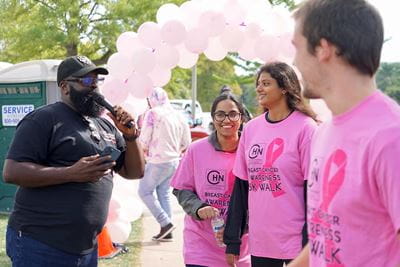 “With this program, we’re making a commitment,” Ryan said. “I hope it accomplishes the workforce development our region needs. The goal is to grow the next generation of health care providers who are committed to being physician advocates and educators in this region and other underserved areas.”
“With this program, we’re making a commitment,” Ryan said. “I hope it accomplishes the workforce development our region needs. The goal is to grow the next generation of health care providers who are committed to being physician advocates and educators in this region and other underserved areas.”
The Urban Medicine Program’s first cohort includes 17 IU School of Medicine students from diverse backgrounds. Some are from the Chicago metro area while others are from urban centers including Indianapolis, New York City and Nashville.
Learn why three first-year medical students chose to apply to the new Urban Medicine Program at IU School of Medicine-Northwest.
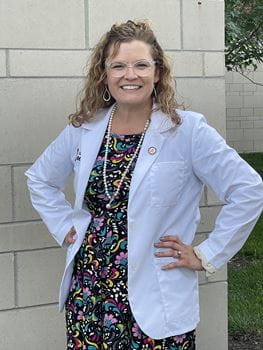 Michelle LaTurner
Michelle LaTurner
Hometown: Crown Point, Indiana
Why did you choose to enroll in the Urban Medicine Program?
I was a teacher in South Chicago and loved that experience. I thought this would give me the opportunity to learn more about serving a population that has unique challenges and difficulties. I also was interested in the opportunities to be involved in long-term service and research that could span all four years of my medical education.
What do you like most about the Urban Medicine Program?
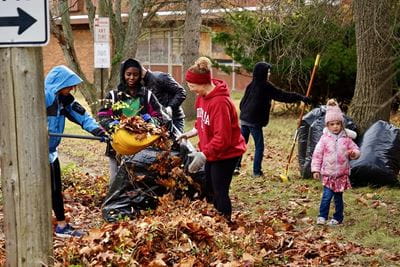 We are just starting and really beginning to get a feel for what is possible. We have started a student interest group (SIG) in urban health and are planning many opportunities to serve in the community and learn. I like service opportunities because they help me remember why I'm working so hard.
We are just starting and really beginning to get a feel for what is possible. We have started a student interest group (SIG) in urban health and are planning many opportunities to serve in the community and learn. I like service opportunities because they help me remember why I'm working so hard.
How will your participation in this program contribute to your career aspirations in medicine?
I am a NHSC Scholar (National Health Service Corps) and hope to return to the Gary area to work in a federally qualified health service area (HPSA-health professional shortage area) as an OBGYN. I believe gaining a perspective of the unique challenges of an urban community, the complications and results related to social and structural determinants of health, and experience working on research and longer-term projects will all help me enter residency having a broader experience and add relevancy to my book knowledge.
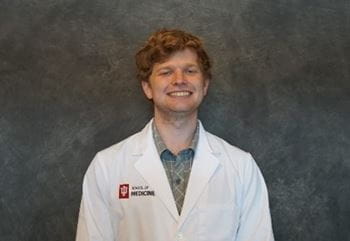 John “Quen” Deckbar
John “Quen” Deckbar
Hometown: Nashville, Tennessee
Why did you choose to enroll in the Urban Medicine Program?
I have lived in Nashville’s 12th South area since I was born, an area that has recently been gentrified by the influx of people moving to the city. As a kid, the area was not nearly as safe and beautified as it is now. Watching my town grow up has its obvious upsides, but at the same time, there are many families displaced or forced out of where they called home with the increase in cost of living. I often volunteered around the area and felt a calling to continue giving back with my future education. One of my role models, Dr. Purkey at University of Tennessee Medical Center in Knoxville, spent a solid portion of her free time running the East Knoxville Free Clinic. Working with her in this program easily convinced me to do the same with my education and career.
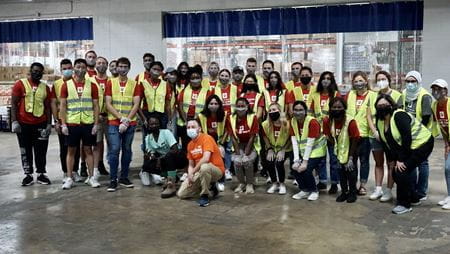 What are the most interesting aspects of the Urban Medicine Program?
What are the most interesting aspects of the Urban Medicine Program?
The notably interesting aspect of my program is the altruistic intentions of my peers. Many are dedicating their free time to act in the interest of those in need of medical services. There is a lot to learn from this underserved population that is often not spoken about openly. Instructors often give personal stories about the disparities they see in their practices—that makes the extra work seem worthwhile. Personally, I have done some work with the Food Bank of Northwest Indiana to fight food insecurities in the area. And many of my classmates and I signed up for a 24-hour sex trafficking medical advocacy training course through Fair Haven Rape Crisis Center-Northwest Indiana.
How do you think your medical school experience will be different than the traditional MD track?
My medical school experience will involve a more underserved-oriented thought process when diagnosing patients. We have already spent many hours training how to look for common issues underlying symptoms such as domestic abuse, an overwhelming household, and financial instability.
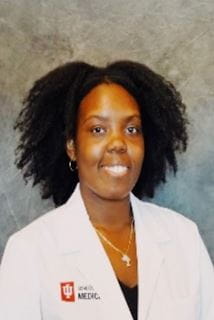 Mia Ndama
Mia Ndama
Hometown: Indianapolis
Why did you choose to enroll in the Urban Medicine Program?
After undergrad, I decided that if I pursued medicine, I would want to practice in good conscience. For me, that looked like working with communities that have been marginalized and underserved, more specifically Black neighborhoods. Being that my mother’s family is from Gary, I believed the Urban Medicine Program to be a great opportunity to work with and advocate for the communities from which I come. I can understand firsthand how the lack of resources and access in an urban setting can affect the overall health of individuals, and over the past couple of years with the COVID pandemic, it has become hard to ignore these health disparities and inequities.
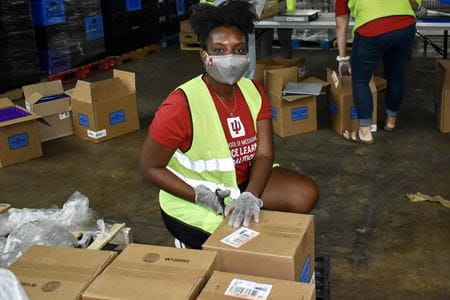 How do you think your medical school experience will be different than the traditional MD track?
How do you think your medical school experience will be different than the traditional MD track?
I appreciate that we take the same courses as our peers in the traditional track; however, we have the opportunity to focus more closely on health disparities by leading our own research projects and taking additional courses in public health. We get an opportunity to work with leaders and health care providers in the Gary/Northwest community, which is pretty special. I like that I am working with a cohort of students who are similarly passionate about service. It feels good to know that I don’t stand alone in my desire to work with communities who are underserved, and I know I will be able to collaborate and learn from my peers.
How will your participation in this program contribute to your career aspirations in medicine?
The Urban Medicine Program is the beginning of the work I hope to do with communities who are underserved. I appreciate the opportunity to more intimately learn about the mechanics of health disparities. I think it’s important to understand how something is operating before we begin to dismantle it. I hope to continue this work toward health equity as I move forward in residency and as a practicing physician.
